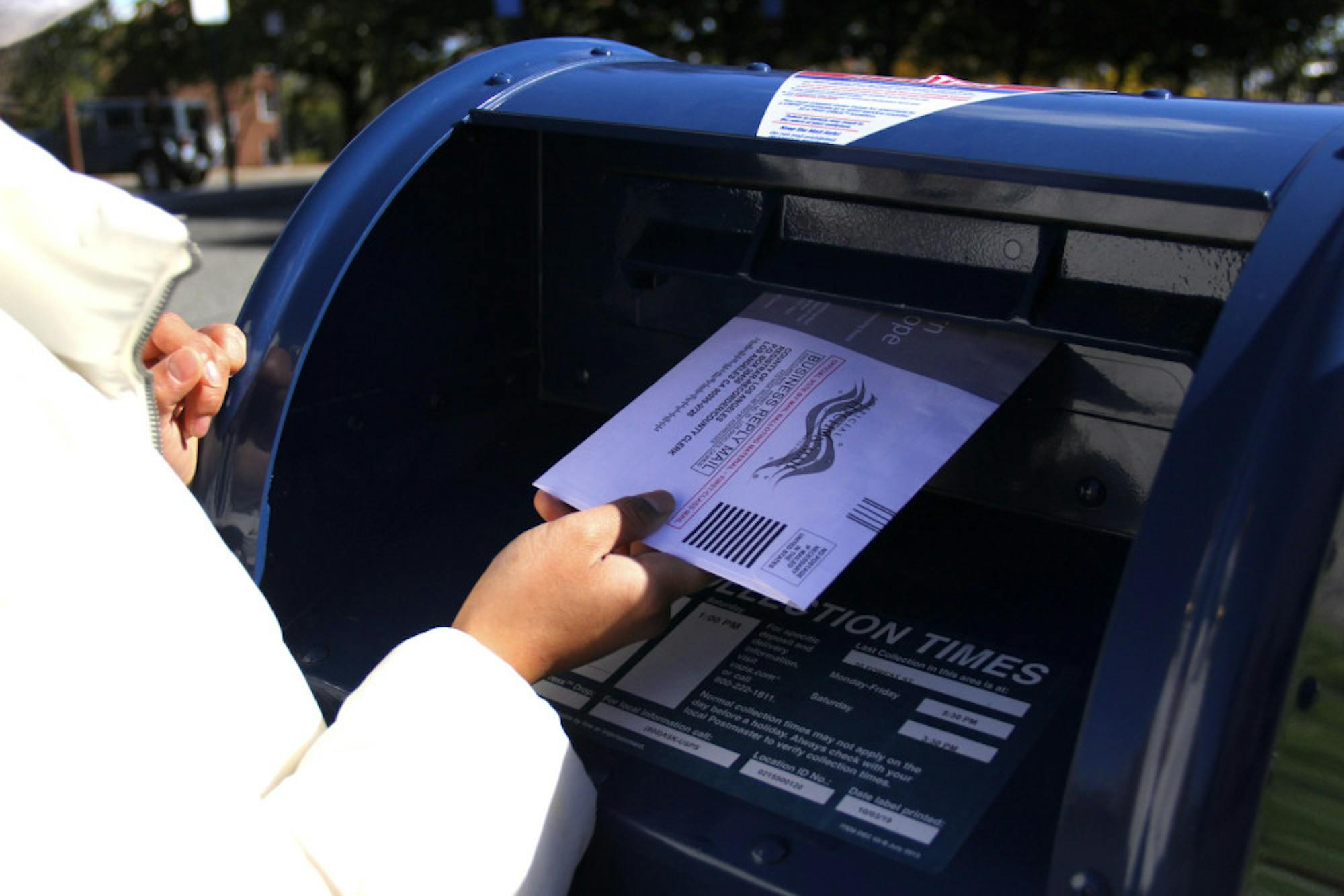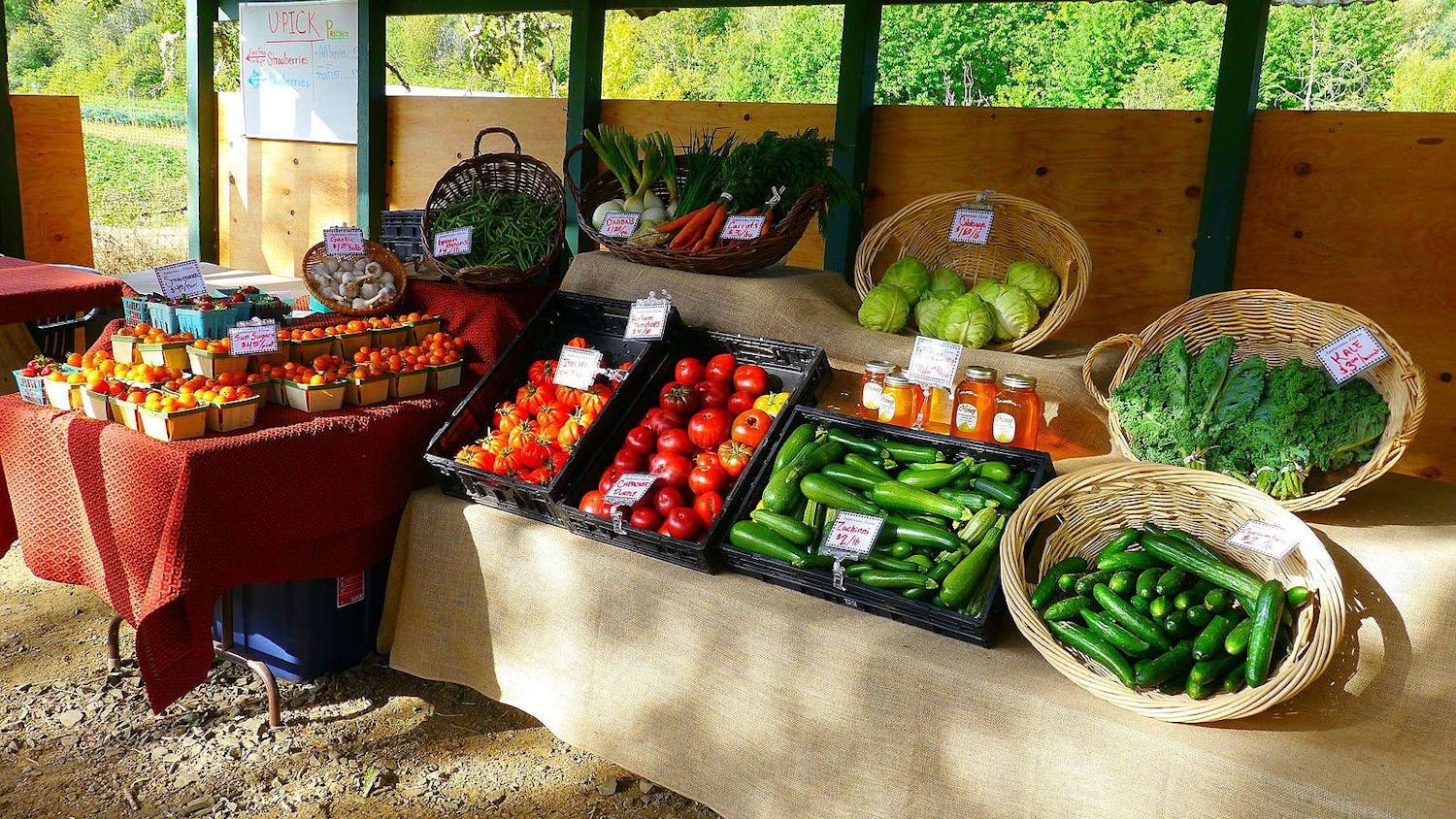Tufts students engaged with the election in a number of ways this semester, from working on campaigns and phone banking to get out the vote efforts and sharing information on social media. Working at the polls on election day was one way students got involved.
A number of students reached out to JumboVote and the Jonathan M. Tisch College of Civic Life asking if there were ways to get involved as poll workers and if there was any training available.
In August, Tisch College sent out information about theSafe Elections Networkpoll worker training in a newsletter. Daniela Sanchez (LA’20), student outreach coordinator at Tisch College, initially reached out toMassachusetts Voter Tableto see if it could facilitate a training on working the polls for Tufts students. That’s when Sanchez was referred to Kristina Mensik (LA’19) atCommon Cause Massachusetts, which was excited to give a presentation.
Mensik is responsible for organizing, advocacy and research at Common Cause Massachusetts, where sheis the assistant director. Her political philosophy is partly shaped by her experiences at Tufts, particularly a philosophy class she took with Peter Levine, associate dean of academic affairs for Tisch College and Lincoln Filene professor of citizenship and public affairs. The class entrenched her belief in democratic reform, expanding the electorate and access to the ballot as her theory of change. These beliefs have influenced her work at Common Cause Massachusetts.
After COVID-19 hit, Common Cause Massachusetts shifted its focus to how to have safe and participatory elections during the pandemic, Mensik said. Over the summer, Common Cause Massachusetts worked on legislation, voter education and a state-wide campaign to ensure that individuals who have the right to vote while incarcerated are able to exercise it.
Mensik gave a presentation to JumboVote about Common Cause Massachusetts’ poll worker program and working at the polls. She also gave presentations to other Boston-area schools, including Boston University and Harvard University.
The presentation included information about how to be a poll worker, as well as the opportunity to be a poll monitor or social media monitor, Sanchez said. The poll worker training itself, through the Safe Elections Network, matched individuals with precincts.
“The thing that I really liked with the Safe Elections [Network] poll worker training was that they would then match you to a precinct because it’s hard to just reach out, especially as a college student and be like ‘hey Medford, I want to be a poll worker.’ That’s kind of scary,” Sanchez said.
This year there was a significant poll workershortage because of the pandemic. Many of those who usually work at the polls are older and more at risk for COVID-19.
Even with the expected shortages, students in Massachusetts helped to fill in.
“Students in Massachusetts have overwhelmingly responded to the call for poll workers to the extent that after we put this program together we’ve hardly had to do anything and virtually every municipality in the Commonwealth has said that they are set on poll workers and actually had to ask us to stop sending students their way,” Mensik said.
Mensik hopes the interest in working at the polls experienced this year continues. The issue of poll worker shortages isn’t new, just the extent of the shortage. She also hopes students continue to stay civically engaged.
“I want to make a plug always for the fact that the wheels of democracy keep on turning and redistricting begins in 2021 and we have legislative battles next session,” Mensik said. “I hope that the level of engagement that we’re seeing in this election carries over to all of these other processes that impact our own political power and our government.”
A number of Tufts students worked at the polls this election cycle. That includes students who are not on campus and worked the polls in their home states, Sanchez said.
Junior Molly Gould was one student who worked at the polls this semester. She first heard about working at the polls from watching “The Daily Show with Trevor Noah” (2015–) over the spring. When Noah films the show from home, he promotes a cause at the end of each episode. He highlighted the need for younger poll workers because of the heightened risk for older people to work this election year. This was coupled with the long lines for voting and fewer polling locations that were expected.
To sign up to be a poll worker in Massachusetts, Gould had to fill out a short form with her name and address. She was then assigned to a precinct in Medford.
On election day, Gould got an early start, with an Uber ride to Temple Shalom of Medford from her off-campus house. She arrived there at 6:30 a.m. before the polls opened at 7 a.m.
Gould was grateful for her fellow poll workers, as she had received little training prior. One woman she worked with helped her learn the system during the initial rush of people.
“I just sort of showed up at 6:30 a.m. and I was like ‘I’m here to work’ and they were like ‘ok good, you can just sit over there and talk to people,’” Gould said.
Gould was responsible for going through voter roll books and checking off names as people arrived. Around half of the precinct had voted early, so Gould had to check to make sure people hadn’t already voted. She also stayed after the polls closed to make sure all ballots were accounted for.
To Gould, the process was very smooth. After the initial rush in the morning, people flowed in throughout the day. It was also less busy than prior years because of the number of early voters this year.
Some people in the precinct were on edge because of a threat to the polling location, a Jewish temple, from Trump supporters claiming they would come to watch the polls. There was a police officer present, but Gould said the whole day was not as stressful as expected.
Despite that, Gould felt a strong sense of community and enjoyed the fun environment provided by her fellow poll workers and voters.
“I feel like I have heard that voting went very smoothly everywhere which surprises me actually. But it was very smooth and everyone was really nice, like we got a break for lunch and people were like do you want coffee and went to go get Dunkin’ Donuts, so it was very nice and genuinely a fun environment,” she said.
After the fact, Gould said she would do it again since she had such a positive experience. The only downside is the long hours.
“It was a good experience, I would recommend it. Everybody was very nice and I feel like it’s a good way to be distracted during a stressful time,” Gould said. “But I did not get a lot of sleep for that period of time.”
In March, Mensik herself worked at the polls. Common Cause Massachusetts works on policy reform in regard to voting, so Mensik felt she needed to understand what it’s like to work at the polls to be able to advocate for changes to be made.
When Mensik worked at the polls she saw Tisch College faculty come in and vote, highlighting the community aspect of voting and working at the polls.
“You experience a sense of community that I think, it’s cliche to say in the modern world, but in the modern world it’s harder and harder to find,” Mensik said.
For her, the experience reinforced the value of democracy.
“It’s really hard to walk away after working at the polls without having gotten a deeper and clearer sense of the value of participatory democracy and making voting as straightforward and accessible as possible,” she said. “It’s this core civic function that is fully nonpartisan and a way to ensure that all voters can make their voice heard in our democracy. It’s really hard to work at the polls and not come away a little bit more concerned with the outcome of the election.”






